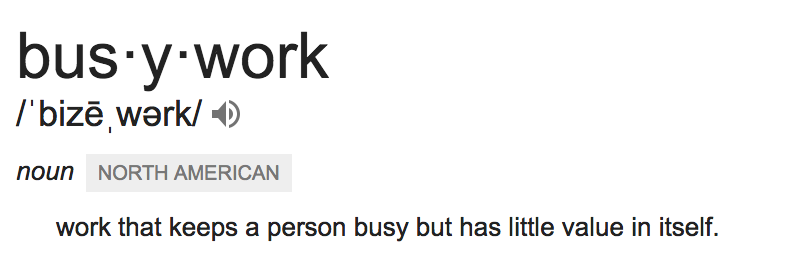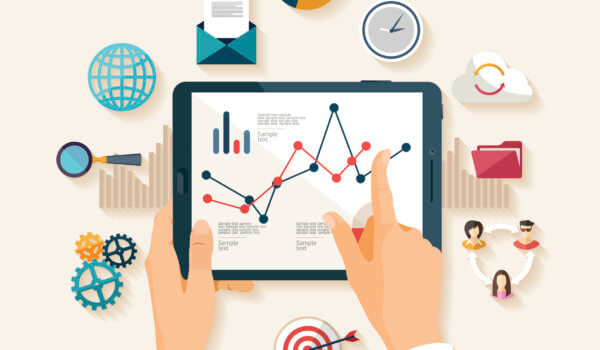It’s no secret that the world is a very busy place, and there are incredible demands on your attention and time—hundreds of distractions every day. But just because it’s public knowledge doesn’t mean it’s okay.
As a platform-builder, your productivity may be the crucial make-or-break factor that determines whether or not you will be successful online.

I often work in a local coffee shop, so I’m privy to dozens of bite-size conversations as customers come and go. These days, I’m stunned that the common response to “How are you doing today?” has become some variation of “Keeping busy!” as if that’s a good thing.
You’re familiar with the term ‘busywork’, right? I love the short definition that Google provides:

Busywork has little or no value, yet our culture uses how busy we are as an unofficial measure of success! After all, important people are often busy. So that means if you appear busy you’ll come across as important, too.
How busy you are has become our culture’s unofficial measure of success.
Your platform is important, and your message deserves to be heard. That’s why you must make productivity a priority (incidentally, Michael Hyatt is hosting a FREE productivity webinar today).
To help identify where to focus your efforts, here are four specific reasons productivity matters to online entrepreneurs:
1. You’re Working with Limited Resources
To some extent, this is always true—but it’s especially true for people building an online platform from scratch.
That’s because your platform is most likely a side project with extremely limited time and financial resources to work with, at least at first.
Plus, to build an online platform the right way you need to spend months building an audience and establishing a relationship before you can expect to make a significant profit off any product launch.
Finally, where some business owners might be able to rely on external funding to get off the ground, you’re not going to find those same options online (good luck getting a bank to back your blog!).
2. You’re Working in Uncharted Territory
The entire online platform industry is barely a decade old. Think about that for a minute, in perspective.
Nearly every single strategy that’s working right now wasn’t possible ten or fifteen years ago. That means, when you’re building an online platform, you can’t afford to move slow.
In the ever-changing landscape of online platforms, you can’t afford to move slow.
Jeff Walker, arguably one of the founding fathers of digital marketing, has only been making income from his platform for twenty years—starting with an email newsletter in 1996.
Other well-known influencers like Michael Hyatt and Pat Flynn, have only been building their online platform for the past ten years or so—because the industry hasn’t existed for very long.
You could spend months (or years) meticulously studying platform-building techniques, but by the time you finally got around to execution that strategy might be outdated or effectively useless.
3. You’re Wearing a Half-dozen Hats
Early on, you need to very quickly develop a varied set of different skills to build your online platform.
You may be your own bookkeeper, WordPress developer, graphic designer, writer, editor, and social media marketer all in the same day!
Switching back and forth between those different roles (and more) can disrupt your focus if you’re not carefully managing your priorities as you go.
I remember a month where I spent so much time working with clients and updating email campaigns that I didn’t have time to write a single blog post.
4. You’re Juggling Competing Priorities
This starts with your various roles within your platform, but competing priorities go even deeper than that.
When you’re building your platform, you need crystal clarity on your vision for what ‘success’ looks like down the road. Will you work for yourself full-time, using your platform? Will it remain a side project with minimal input and passive income coming through?
There are countless other variations of those options, but whichever path you choose, you need to be intentional. Otherwise you might spend all your energy growing something that you come to despise.
Don’t let your platform’s growth outpace the path you’ve paved ahead.
For most, this means getting clear on what’s most important—independence, influence, or income?
Learn more when you sign up for Michael Hyatt’s FREE Webinar: The 7 Deadly Sins of Productivity: The Hidden Habits Undermining Your Performance (And How to Change Them).
If you’re doing this right, your platform should be a means to an end—you just have to determine what the end is.



